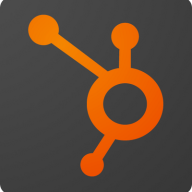

HubSpot Sales Hub and Dynamics 365 Sales are comprehensive sales solutions competing in the business sector. HubSpot Sales Hub is a cost-effective option with simpler pricing and attractive support, while Dynamics 365 Sales offers a rich feature set making it worth the investment.
Features: HubSpot Sales Hub includes valuable functionalities like email tracking, deal pipelines, and integration with marketing tools. Dynamics 365 Sales offers advanced AI-driven insights, customizability, and integration with Microsoft tools like Teams and Outlook.
Room for Improvement: HubSpot Sales Hub could expand its international support, enhance its integration capabilities, and improve its analytics features. Dynamics 365 Sales might benefit from simplifying its deployment process, reducing its initial costs, and improving its user-friendliness.
Ease of Deployment and Customer Service: HubSpot Sales Hub is known for its quick setup and user-friendly navigation, supported by responsive customer service. Dynamics 365 Sales requires more expertise for deployment but offers robust service support and training resources.
Pricing and ROI: HubSpot Sales Hub presents straightforward pricing with a free tier, offering potentially higher ROI for smaller businesses. Dynamics 365 Sales, though initially more expensive, provides substantial ROI through its advanced features, benefiting larger enterprises.
Our company reached the return on investment in just one and a half years after implementation, with improvements in productivity, efficiency, and overall outcomes.
Every solution claims to save time, money, and provide productivity savings.
Without it, we wouldn't be able to manage everything properly or strategically plan our sales strategy.
They prioritize serious issues and try to resolve them as quickly as possible.
The overall technical support of Microsoft deserves a rating of 10 out of 10.
They consistently respond and provide solutions, though some limitations are inherent to the tool itself.
It is more difficult with the language in Portuguese, which complicates understanding other functions.
The community of HubSpot Sales Hub and information available in Google is sufficient enough to basically self-help myself.
Dynamics 365 Sales is highly scalable, with a rating of ten out of ten.
Because of the API limits, the throughput is not good.
We have a global deployment across our organization in approximately 180 countries through Microsoft Azure cloud.
Regarding scalability, I think it's really well-designed; not to some enormous size, but it allowed us to start easily and then expand really.
I usually do not face any bugs and would give it a high rating.
Its stability rate is 99.9998%, which is crucial as any instability could disrupt access to vital information.
It is definitely stable and scalable.
For instance, out of 10,000 API requests, approximately 10 might get missed with absolutely no record of them.
I don't recall experiencing any outages or downtime with HubSpot Sales Hub.
If Microsoft could provide direct integration, it would better support customers, especially in the Indian market.
They advise about using Power Automate, but it is not suitable for large scale operations.
The biggest challenge that people had was the simplicity that something like Salesforce offers, which Dynamics 365 Sales didn't really have.
The overall cost is relatively high compared to some alternatives available in the market.
The problem with the email tracking feature is that it recognizes auto-screening in email tools, which means HubSpot Sales Hub thinks an email opened by an end-user is actually an email that is screened, giving me false expectations.
HubSpot Sales Hub could be improved by being more affordable in other countries.
The list price is $150 per user per month, though my company pays $105 per user per month for 20 users.
It is affordable, and what I've seen is a lot of SME customers, small and medium enterprises, tend to go with Dynamics 365 Sales over anything else, which indicates that it's more affordable than some other solutions in the market.
The sales component is somewhat expensive, making the overall cost higher compared to some other available options.
This CRM system is more scalable than Salesforce, and its stability rate is 99.9998%.
In SAP, filling 20 fields required visiting 10 different pages sequentially, whereas now everything can be done on a single page.
It is well-connected, with integration capabilities that work well with other systems.
The most important feature for us is the ability to plan workflows and integrate other systems manually, even without native connectivity.
The divisions for sales and the graphics are very customizable in HubSpot Sales Hub.
What I like about HubSpot Sales Hub the most is that it's complex in a good way, it has everything I need, it's well-integrated with other tools, and it's easy to integrate with.
| Product | Market Share (%) |
|---|---|
| HubSpot Sales Hub | 1.0% |
| Dynamics 365 Sales | 0.5% |
| Other | 98.5% |

| Company Size | Count |
|---|---|
| Small Business | 9 |
| Midsize Enterprise | 2 |
| Large Enterprise | 4 |
| Company Size | Count |
|---|---|
| Small Business | 15 |
| Midsize Enterprise | 4 |
| Large Enterprise | 3 |
Dynamics 365 Sales empowers teams with capabilities in lead management, scheduling, and workflow organization. Its Office 365 integration and comprehensive ERP features enhance productivity and control.
Dynamics 365 Sales offers powerful tools for managing leads and customer interactions. Its integration with third-party apps and REST APIs simplifies workflows, providing comprehensive visibility and reliable performance. Teams benefit from its robust documentation and Power Platform compatibility, enhancing productivity with flexible pricing and a user-friendly interface. Despite some complexities, improvements in Outlook integration, AI features, and affordability are areas for enhancement.
What are the key features of Dynamics 365 Sales?Companies in industries like retail and sales management implement Dynamics 365 Sales to track opportunities and manage customer interactions. It helps in generating customized offers, managing orders, and supports sales reporting and CRM capabilities. Teams utilize it for sales management, lead follow-ups, and aligning targets with objectives, making it essential for daily operations.
Powerful Sales Software That Grows With You
Track how deals are progressing, organize all sales activity in one place, and accelerate sales cycles to close more deals, faster.
We monitor all CRM reviews to prevent fraudulent reviews and keep review quality high. We do not post reviews by company employees or direct competitors. We validate each review for authenticity via cross-reference with LinkedIn, and personal follow-up with the reviewer when necessary.